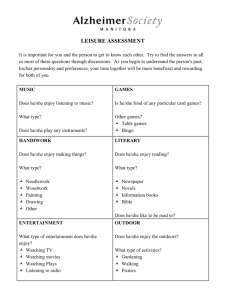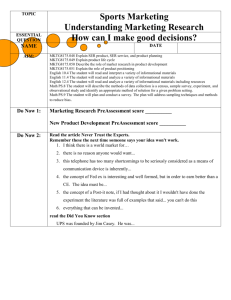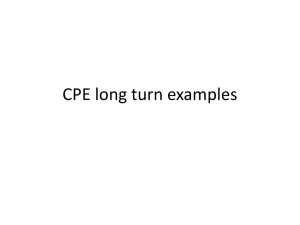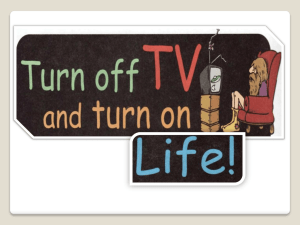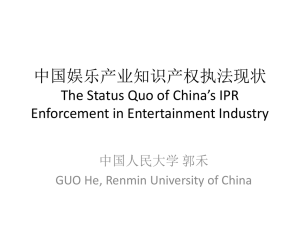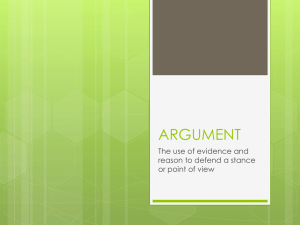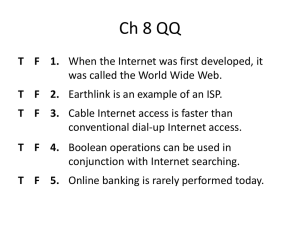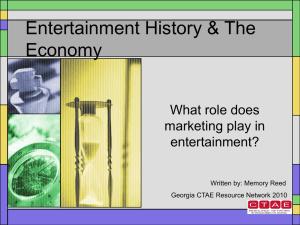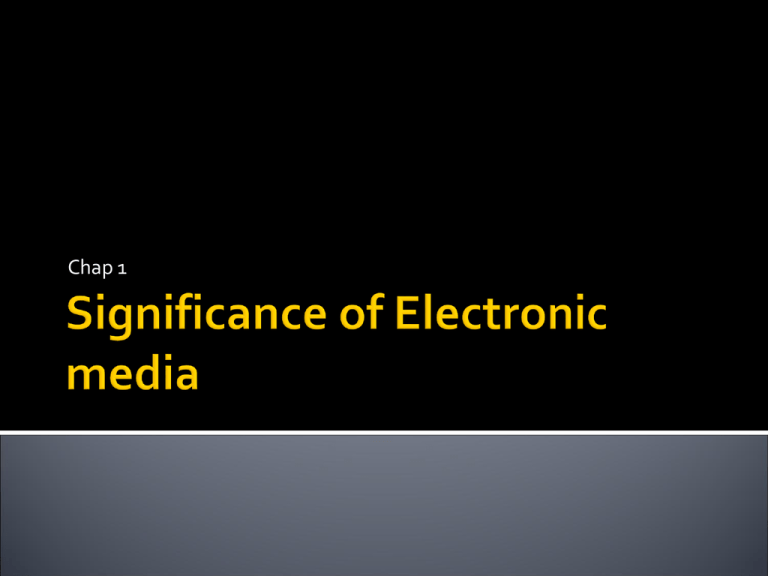
Chap 1
Careers
▪ There are numerous careers in electronic media
▪ Industry familiarity & knowledge of changes
▪ improves careers success
Understanding
Knowing media tools & impact helps
▪ Understand how the media influences
▪ Individual behaviors, views, opinions
▪ Society
▪ Teach most effective method of interacting with media
Changes over the years
Radio & TV – 1st two broadcasting mediums
▪ Local Radio & Major 3 networks dominated early broadcasts
1960’s-70’s brought
▪ Commercial vs public broadcasting
▪ CATV, VCR’s, Satellite, Low Power TV (1982)
▪ Industrial TV – Used by companies for training
Later (Corporate Video/Organizational TV)
▪ Narrowcasting
▪ When TV programming targeted specific audiences
What is an example of a TV station/channel that does this
1980’s
Brought more variety to TV delivery systems
▪ Videotape, Video Stores, Cable, Satellite, Remotes
Reduced the control of the Big 3 Networks
▪ On determining what consumers were watching
1990’s
Growth of information access through
▪ Cell phones, Internet (via Dial up), E-mail
Information once provided by Radio/TV available online
▪ Webcasting, browsers, ISP’s, search engines, blogging
▪ Began developing at faster rates
2000’s
Internet explodes as source of information
▪ High speed access, faster computers, bigger hard drives
▪ Allow vast amounts of information to be stored & retrieved
DVR’s replace VCR’s allowing time shifting of TV programs
Other new technology being embraced by consumers
▪ Satellite radio, HD Radio, HDTV, Blue Ray DVD,
▪ Digital Movie theaters, Podcasting, MP3 Players, PDA’s (Smartphones)
▪ Texting, Social networking
▪ What’s Next?
▪ Are there any even newer innovations you can think of?
How many different types of media are in your home?
Do you use all of them or only some?
Are they all used by someone?
Are they all needed?
Media ownership has shifted recently (pg 7)
▪ Landlines which were once at 100% have dropped
▪ Cell phones have become the only phone for many
▪ Internet access almost non-existent prior to the 90’s
▪ Is almost a universal service
▪ Cable TV subscribers have dropped
▪ What are some causes for this?
▪ Does anyone in here have a VCR in your home?
▪ Is it used?
DVD’s are now preferred due to higher quality
Video game console & DVR ownership is also growing
▪ Why do you think there has been an increase in DVR’s
The most stable media devices
▪ Television & Radio
▪ Both are at almost 100%
▪ Average home has 6 radios & 2.4 TV sets
▪ How does your home compare
People spend a great deal of time with media
▪ Media devices are used & they are also used
▪ Interaction with media is significant part of life
Interesting Trends
▪ Increased use of internet has not reduce TV watching
▪ Heavy internet users claim TV watching has increased
▪ TV watching
▪ Has shifted from broadcast TV more to cable TV
▪ Has become complicated
Would a show made for the internet be considered watching TV?
Media Link
Watching a Netflix video, streamed through a
video game console, watched through a
television
What would that be?
Video games have grown tremendously
Often earning more than domestic movies
▪ Grand Theft Auto IV - $500 million in 1st week
Internet usage has shifted over the years
There are several current categories
▪ Today the top use of internet is Content
▪ Followed by Communication
▪ Next is community (Category added in 2008)
▪ For social networking sites
Traditional functions include
▪ Entertain, Inform, Persuade
Functions have expanded as media have expanded
▪ Presenting Entertainment
▪ Disseminating news & information
▪ Aiding Commerce
▪ Transmitting Culture & Customs
▪ Acting as A watchdog
▪ Providing relaxation & companionship
▪ Connecting people to each other
Presenting Entertainment
The main function of many forms of electronic media
▪ Movies, Video Games, Majority of TV programs
▪ Internet has increased entertainment element
▪ Due to Audio/Video elements
▪ Why is entertainment a big part of electronic media?
▪ Increases in technology has transformed entertainment
▪ From passive only to incorporating interactive elements
Some are dissatisfied with the entertainment function
▪ Politicians, citizens groups, parents, etv
▪ Complain that there is too much sex & violence on TV
▪ Some feel that the imitation of ideas (especially reality)
▪ Has led to poor quality programming on TV
Despite the changes and sometimes poor decisions on
the part of content developers
▪ Entertainment will no doubt continue to serve as the main
function of electronic media
Disseminating news & information
Electronic media provides immediate updates
▪ For disasters, breaking news, current events
▪ When have you turned to electronic media for more
information (disasters/breaking news)
Especially radio
▪ Because it is portable and relies less on electricity
▪ (battery powered radios)
▪ During disasters (tornados, hurricanes) other media often fail
▪ (What is changing this)
Disseminating news & information
Information is also useful at other times
▪ What information do you regularly get from the media
▪ What are your sources of news?
Everyone's interests are different
▪ What is something that you learned more about by seeking
out info online or on TV
Personalizing news
▪ Yahoo, google news,
What are some problems with
Aiding Commerce
Persuasion
▪ Who has bought something based only on advertising?
What made you buy it?
▪ What made the commercial/ad appealing?
Humor, Visual effects
▪ Commercials today are not as much of a hard sell
▪ Memorable gimmicks with brief reference to product are used more
Aiding Commerce
Tailoring
▪ Commercials may differ based on
geographic region
▪ Same show different commercials
Aired to appeal to specific audiences
▪ Google ads
▪ Show similar products in the side bar based on
keyword searches
Aiding Commerce
Shopping
▪ Has been revolutionized through electronic media
▪ Who has bought something online
▪ What type of product/service, where was it bought
Advertising has become a nuisance to people
▪ Many with DVR’s skip through them
▪ Others ignore them or flip channels
▪ How have advertisers adjusted to remain visible
Transmitting Culture & Customs
▪ Think of some shows that portray a culture/lifestyle
▪ Do these shows influence perceptions of that group/culture
▪ Unintentional
▪ When the content broadcast associates with a group regardless of
motives behind the production
▪ Intentional
▪ When the content purposely reflects a particular group or culture
Foreign language, religious, public service programming
▪ Criticisms
▪ Media often are the catalyst of stereotypes
Many stereotypes, ethnic/cultural are magnified through the media
Acting as a watchdog
Watching over aspects of society
(especially government)
▪ This role is often reserved for journalists
Watching & reporting political candidates
Reviewing new laws that affect many
Informing the public about scandal and fraud
Informing public about of information that is hard to find
▪ Some media provide a window for us to view (CSPAN)
Some interpret information for the public
Can lead to bias &/or slanted information
Providing relaxation & companionship
▪ The television can be your friend
▪ People who live alone
▪ The internet/radio
▪ Can provide entertainment or relaxing sounds
▪ The media can provide a getaway
▪ After a hard day it can provide relief from the rigor of daily life
▪ Can also become problematic if it becomes addicting
Web Link
Connecting people to each other
▪ How many of you have ever watched a new show or movie
And talked with your friends about it later?
▪ A movie comes out that you never heard of
What would convince you to check it out
▪ “Water-Cooler” Function
▪ When people talk in groups about a show they all watched or heard
recently
▪ Today’s media is more fragmented (less people watch the same shows)
▪ E-mail, texting, social media, internet searches
▪ These are all methods people use to stay connected
People (The consumers)
▪ Are in more control of the media than in the past.
▪ Gatekeepers heavily influenced content in the past
▪ Network executives, News producers, Radio music directors, etc
▪ Their power has diminished
Due to time shifting devices
From Increased sources of media
How many of you have ever posted a video
User-Generated Content
User generated content
The internet has allowed for the explosion of user
generated content for people to browse
▪
▪
▪
▪
Videos & Short films
Online radio stations
Multimedia Websites
Public access channels
▪ (Through Cable TV providers)
Convergence
▪ Bringing together various media forms & facilities
Proliferation
▪ Distributing media content to many places through many
platforms
Resilience
▪ The ability of various forms of electronic media to adapt and
continue to exist
Convergence
▪ 1 – Blending of multiple forms of media to create new ones
▪ Radio over the internet
▪ 2 – Blending of facilities
▪ Cable & Phone companies offering the same thing
Proliferation
▪ Reaching consumers through innovative ways
▪ What is one of the strangest or odd places you have seen an
advertisement?
Resilience
▪ The fast paced media industry is constantly changing
▪ Old media have to change or adapt to remain valid
The significance of electronic media will continue to increase
People will use it now more than anytime in the past
The criticisms on media content will continue
Some of the equipment that connects people also disconnects them
▪ Computers keep people connected online
▪ But away from their families
With the media changing at such a rapid pace
Only time will tell what the next mediated innovation is

